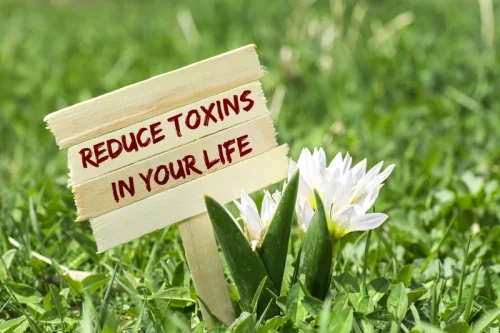Substance Abuse and Mental Health Services Administration

Students work under the supervision of a licensed professional to apply the theories and techniques they’ve learned in the classroom to real-life situations. The internship experience requires a student to substance abuse counseling interact directly with patients and stay engaged in the treatment process. In this type of training, students are typically tasked with some record keeping and can complete a number of hours independently.

Center for Mental Health Services (CMHS)

All of these qualities play a role in developing what is known as the therapeutic relationship or the working alliance between a mental health professional and a client. This relationship, which involves a bond of respect, trust, and mutual collaboration, can play an important part in successful substance use disorder treatment. Cognitive-behavioral therapy (CBT) is a treatment approach that focuses on changing https://ecosoberhouse.com/ thoughts and behavior patterns. Substance abuse counselors often use CBT techniques to help clients recognize the inaccurate thoughts and feelings that help maintain addiction. They also use CBT to teach new coping skills that help people find new ways to deal with cravings, relapses, and stress. Hands-on training allows students to engage with clients while being supervised by licensed counselors.
TAP 21: Addiction Counseling Competencies: The Knowledge, Skills, and Attitudes of Professional Practice
Substance abuse treatment at The Recovery Village includes a dual diagnosis process to identify co-occurring disorders so that mental health counseling can be integrated accordingly. For many clients, the two diagnoses (substance abuse and mental health disorder) are deeply intertwined, requiring simultaneous treatment. A substance abuse counselor is an educated professional who works with those living with substance use disorders, behavioral issues, and mental health conditions. If you are learning about the substance abuse counseling field, we suggest starting with the basics. Substance abuse counselors work with individuals and groups to provide counseling, education, and support to those struggling with substance use disorders.
- They may provide individual counseling, lead group therapy sessions, and intervene during crises.
- Other states require a master’s level degree in counseling, professional experience, and passage of a licensing examination.
- At Healthgrades, our Editorial Team works hard to develop complete, objective and meaningful health information to help people choose the right doctor, right hospital and right care.
- Counseling as a career is ideal for someone interested in working with individuals and groups to improve mental, behavioral, and emotional concerns.
- Substance use disorders are among the most challenging health conditions to treat due to the chronic and compulsive nature of the disorder.
How to Become an Addiction Counselor

At Hazelden Betty Ford, you’ll have the opportunity to learn from top counseling experts at the nation’s leading nonprofit addiction treatment center. When you graduate, you’ll have the training and real-world clinical experience you need to succeed in your field. The job outlook for substance abuse counselors is expected to grow 23% from 2020 to 2030, which is faster than the average for other occupations.
Substance abuse counselors, also known as addiction counselors, are professionals who provide mental, emotional, and behavioral health services to help clients recover from addiction. BLS data shows that the median annual wage for substance abuse, behavioral disorder, and mental health counselors was $48,520 as of May 2021. The lowest 10 percent of counselors reported earning around $30,870, while the highest 10 percent earned more than $77,980. It is important to note that addictions counselor salaries can vary by industry.

Choosing to become a substance use disorder counselor is a remarkable, meaningful, humanitarian career choice. A degree from the Hazelden Betty Ford Graduate School will allow you to impact vulnerable individuals, families, and communities positively. Becoming an addictions counselor comprises several steps, but offers many opportunities to support members of various communities and help to set them on the challenging but rewarding path to recovery.
- Licensed addiction counselors are experts at understanding the underlying causes of addiction.
- The BLS states that the need for counselors will remain high as state governments seek to treat people who are incarcerated and live with addiction and mental health disorders.
- If you are having suicidal thoughts, contact the National Suicide Prevention Lifeline at 988 for support and assistance from a trained counselor.
- People of all ages who have a substance addiction problem should consider seeing a substance abuse counselor.
- SAMHSA Offices and Centers provide national leadership to advance the agency’s mission and improve the behavioral health of the nation.
- A substance abuse counselor specializes in providing advice, counseling and support during treatment for substance abuse.
- There are a few common ways to find an addiction counselor for in-person or teletherapy treatment.
- Each treatment center has a unique set of staff titles that are created by their human resources departments.
Counselors for drug addiction may assist people in dealing with these issues by guiding clients away from substance abuse. People can overcome their addictions with the aid of experts in this profession, start making better decisions, and live healthier lives. These plans may involve inpatient or outpatient care, psychotherapies such as cognitive behavioral therapy (CBT), mental health counseling services, and support groups. Licensed addiction counselors typically spend between 4,000 and 10,000 hours doing supervised training. Substance abuse counselors provide mental, emotional, and behavioral health services to help clients recover from addiction.